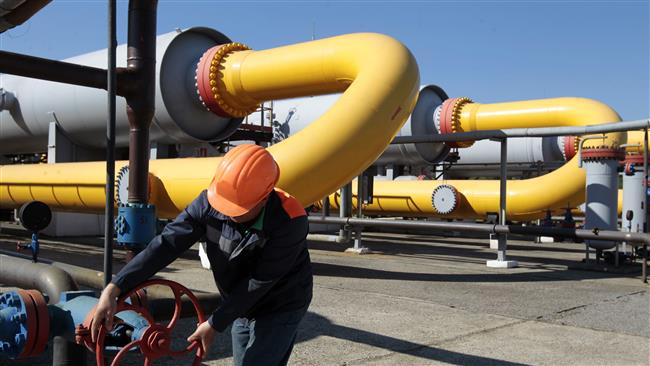Russia’s gas giant, Gazprom, has announced that it is halting natural gas supply to Ukraine after pricing talks between two neighbors failed, according to Press T.V.
“Ukraine did not pay for July gas supplies,” Gazprom chief, Alexei Miller, said in a statement on Wednesday, adding, “Gazprom has halted gas supplies to Ukraine from 10 a.m. (0700 GMT) July 1.”
The Russian official emphasized that Russia will not supply gas to Ukraine, unless the country accepts to pay for it no matter what the future price will be. Miller added that the gas pricing formula for Ukraine will remain unchanged until late 2019.
Officials in the Kremlin have so far declined to comment on the issue.
The announcement by the Russian company came after Ukraine declared on Tuesday that it had plans to halt all gas purchases from Russia after EU-mediated negotiations between Moscow and Kiev in Austrian capital, Vienna, hit a deadlock. The talks aimed to help the two countries reach an agreement to keep gas supply going on.
Meanwhile, Ukraine’s state energy company, Naftogaz, issued a statement saying that the new development will have no effect on gas supplies to Europe, adding that it will continue transporting Russian gas to other European clients.
 Maros Sefcovic, the European Commission’s vice-president for energy union, also confirmed that gas supplies to Ukraine and the EU will not be affected by the latest spat between Moscow and Kiev over gas price, saying, “Both gas deliveries to Ukraine and transit to the EU are not endangered.”
Maros Sefcovic, the European Commission’s vice-president for energy union, also confirmed that gas supplies to Ukraine and the EU will not be affected by the latest spat between Moscow and Kiev over gas price, saying, “Both gas deliveries to Ukraine and transit to the EU are not endangered.”
Gas disputes have been going on between the two countries over the past years. The disputes worsened after Russia remarkably increased the price of gas it supplies Ukraine following the country’s former president, Viktor Yanukovych, was ousted in a pro-Western unrest in February 2014. His ouster was followed by heavy clashes in the eastern parts of Ukraine between government forces and pro-Russia fighters.
In February, Russia’s state-owned gas giant, Gazprom, threatened to cut off its supplies to Ukraine and divert them to the country’s eastern regions, which are controlled by pro-Russia forces.
Russia supplies around a third of Europe’s natural gas, half of which flows through Ukraine.
Kiev is currently purchasing most of its needed gas from countries in Central Europe and Norway.
R.S

